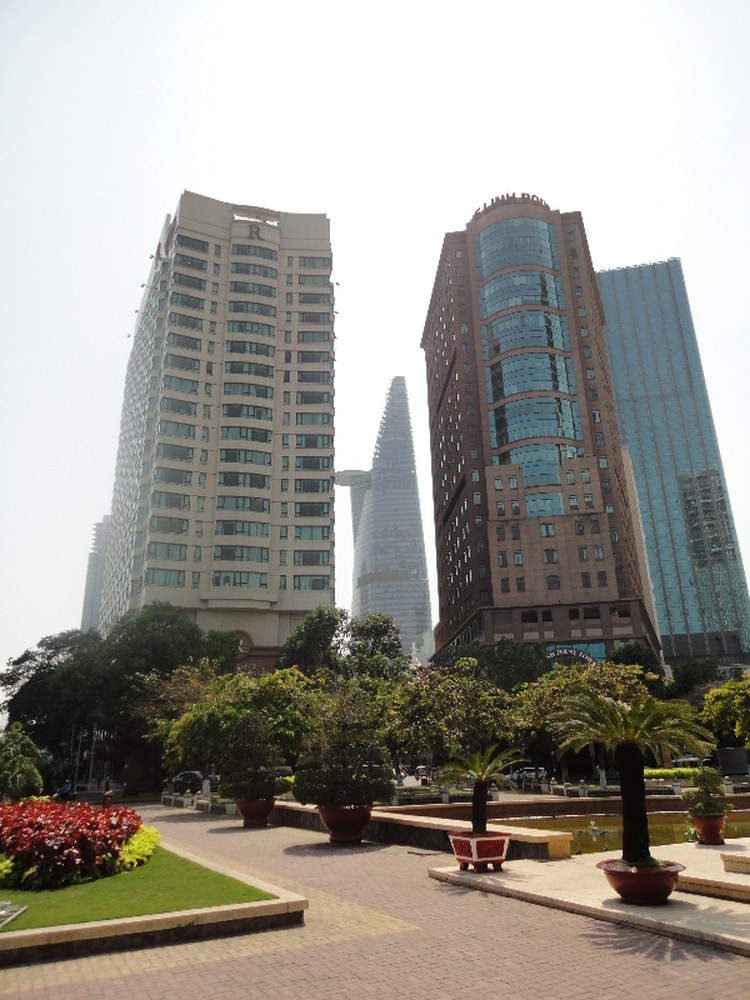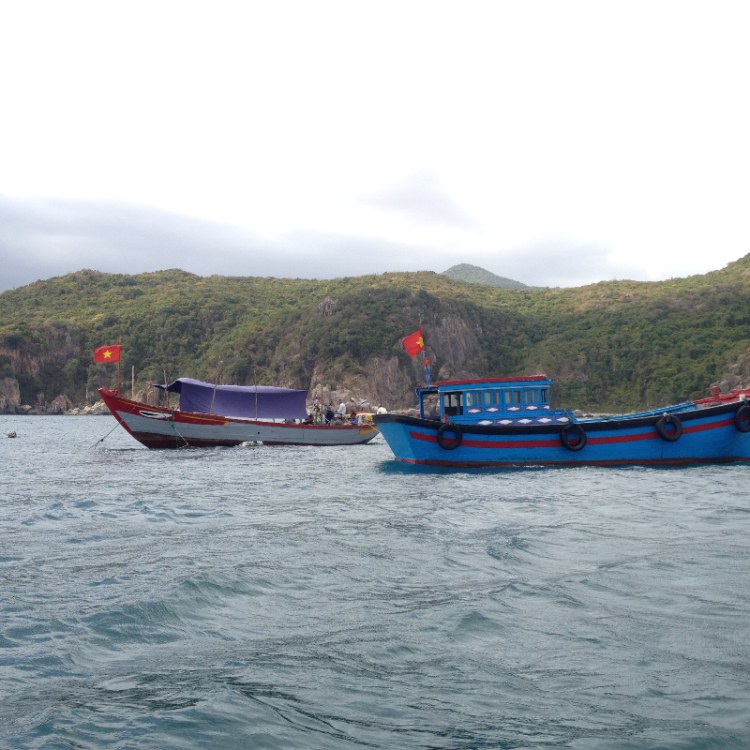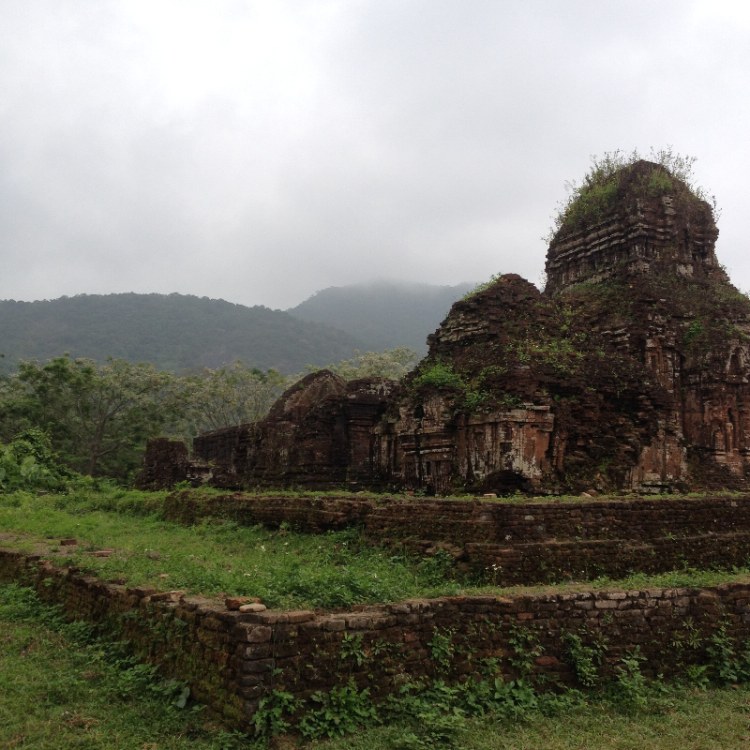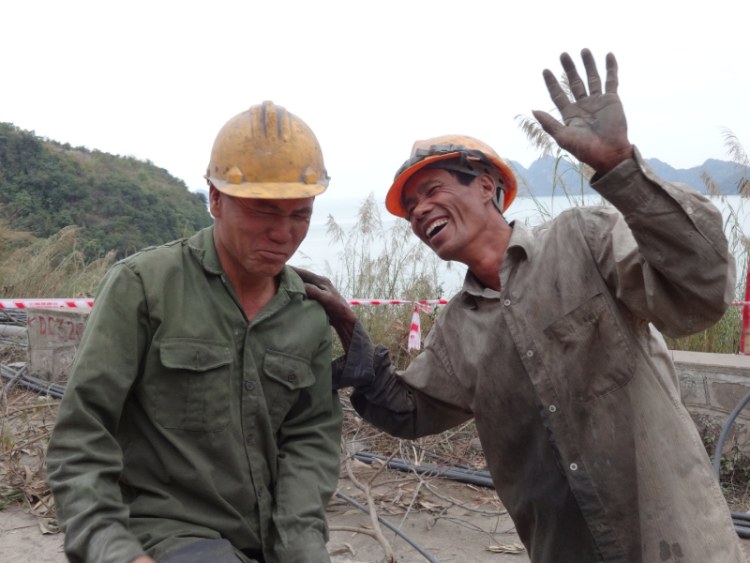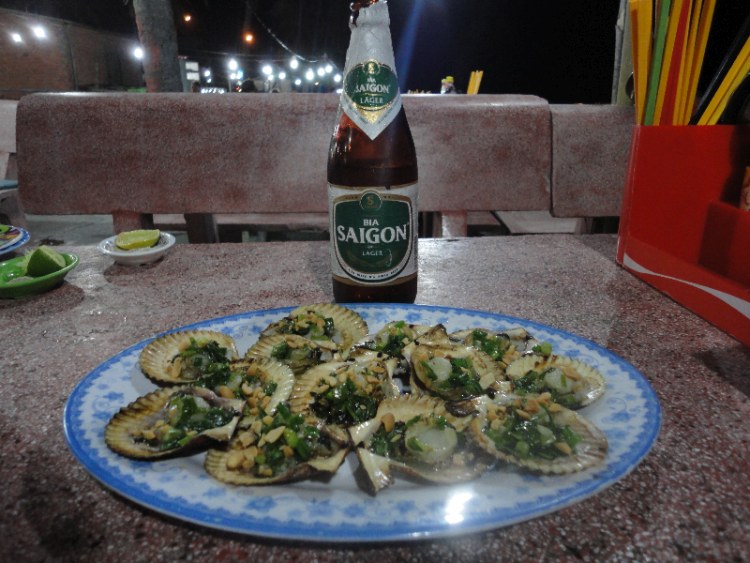
Top 10 Surprising Things About Moving to Vietnam: Some Advice
1. The Language Barrier & Impossibility of Learning Vietnamese
Though you will find a lot of the local Vietnamese population can speak traces of English, it is much harder to communicate than most people anticipate. Even tasks as simple as ordering food or asking for directions can turn out to be menial and frustrating because of the language barrier.
And, on the flipside, learning any Vietnamese is near impossible; because it is a tonal language, it utilizes much different sounds than we are used to in the romance languages (English, Spanish, French, etc.). The only expats I met who spoke Vietnamese had been studying for at least five years…prepare to be giggled at when trying to muster up ‘hello’ (xin chào) and ‘thank you’ (cảm ơn).
2. Getting Stared at ALL the Time
For some reason, more than any other country in SE Asia, I found that I got stared and pointed and waved and laughed at the most in Vietnam. This especially applies if you are living and working in neighborhoods or cities outside the main “tourist area” – the local population will be repeatedly surprised and curious about you.
As some would say – you can get over your culture shock, but the culture never stops being shocked by you.
3. Modernization
It’s true – Vietnam is a country with a long-spanning history; this obviously has an effect on the landscape, architecture, and institutions in the country.
Sponsored LinkHowever, it is a misconception to think of Vietnam as “third world” or as “out of touch.” Especially in the bigger cities (HCMC & Hanoi), you will find a lot of modern amenities that you would see in Western countries – there is McDonalds, Starbucks, a Hyatt hotel, sprawling Internet access, massive megamalls…And this also applies to the people: you will undoubtedly see young hipsters with tattoos and teenagers going to yoga and the movies. To think that going to Vietnam will be a step back in time is shortsighted at best. For more interesting facts on Vietnam follow this link.
4. Traffic
It’s simply insane, and unlike anything you will see on the highways and roads you’re likely used to. Someone once told me that in Ho Chi Minh alone, there are over 5 million registered motorbikes and car. If you are lucky enough to experience what rush hour looks like in Ho Chi Minh or Hanoi, you will never complain about traffic in your city again. It is organized chaos. Nobody follows the lights or the laws, and the motorbikes approach in massive swarms.
5. The Ease of Driving a Motorbike
This seems counterproductive to #4, but it’s not. Many people ride a scooter for their first time in SE Asia; if this is you, prepare to be surprised by how easy it is to get the hang of. You are one fish in a huge school, and are merely following the lead of hundreds of other drivers. As long as you drive relatively slow, wear a helmet, and get an automatic bike, you’re going to be fine.
6. Vietnamese Names
Names are much different in Vietnam than anywhere else I’ve experienced in the world.
For one, there are about 15-20 names that span 90% of the population; anything you hear outside of these names is extremely unique.
Secondly, there are three parts to a Vietnamese name: a family name, a middle name, and a first/given name. You speak them in that order. Therefore, the “last name” (family name) actually comes first in writing/speaking. Since names are repeated so frequently, most people choose to go by their middle and first name. So, for example, with the following name:
Nguyễn Minh Trang
Nguyễn would be her family name; Minh is her middle name; Trang is her given name. Most people would call her “Minh Trang,” or simply “Trang.”
7. The Geographic Diversity of the Country
Vietnam is a massive country, and the shape of the country lends itself to a huge diversity of landscapes and cultures. The South is incredibly different from the North, and the Central mountains and coast are vastly different from both.
You can find pretty much anything in Vietnam—there are snowy peaks in Sa Pa, there are beaches that are sunny year round in Nha Trang, there are islands with limestone karsts in Ha Long Bay, there are sand dunes in Mui Ne, there are vastly large cities…this country has EVERYTHING.
8. The Cost of Living
First timers in Vietnam are always undoubtedly shocked by the price of hostels and street food. You can live on a couple dollars a day here if you want to. Renting an average apartment or house in Hanoi or HCMC is about 4million VND per month
(about $200 USD), which is much cheaper than you will find in major Western cities. If you pair this with working or teaching, which pay quite well in Vietnam, you are able to live cheaply and save money quickly. (Read about cheap goods and services in Vietnam here).
9. The Weather
Just as the geography and culture vary greatly depending on where you are in Vietnam, the weather is incredibly diverse; some cities have seasons, others have a relatively mild climate; some get cold in the winter, some stay sunny and warm all year.
There is pretty much only one guarantee when it comes to Vietnamese weather: the summer is HOT. Unbearably hot. If you travel or live in Vietnam during this time, expect sunshine, sunburns, and sweat. If you travel or live in Vietnam throughout the rest of the year, you can expect the south (HCMC) to remain relatively warm and sunny year round; however, Hanoi does go through seasonal changes and gets quite cold and rainy in the winter, and Sa Pa can even get snow during the winter months.
10. The Warmness of the People & How Hard it is to Leave
Perhaps predictable, and yet unquestionably true; you will find yourself in numerous situations where you are shocked by the hospitality that this country provides. Whether it’s a local teenager stepping in to help you order food, the bus driver who helps you to get off at the right stop, the man you rent your motorbike from who takes you out to tea every month, or the giggling group of girls who approach you to practice their English—the Vietnamese are a special bunch.
No matter how long you live or travel in Vietnam, you’ll likely always be surprised at how hard it is to leave this beautiful country.
